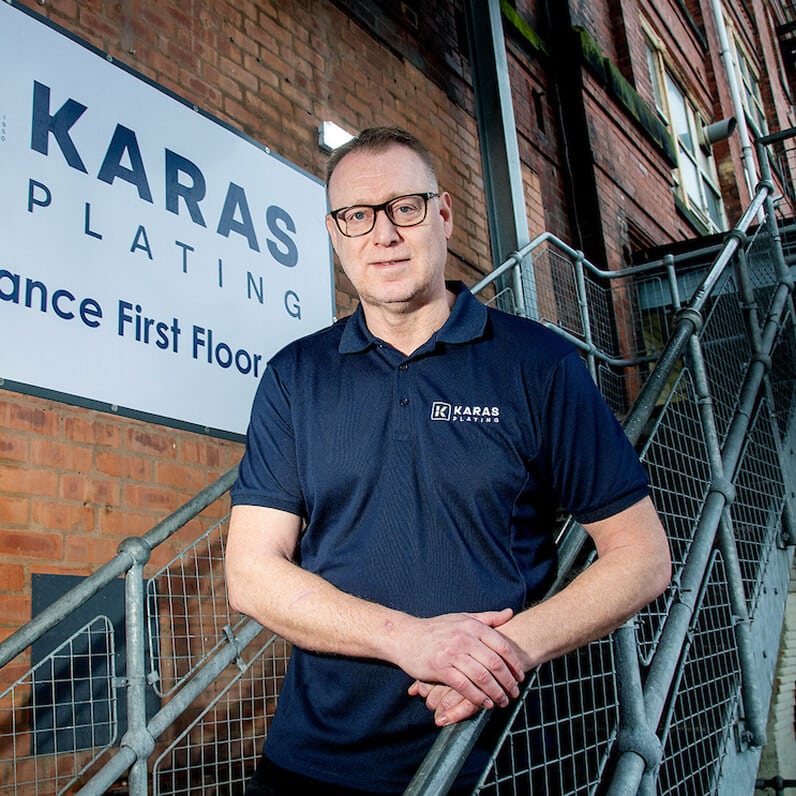
The many benefits and applications of industrial silver plating
Industrial silver plating has been conducted since the mid-19th century. There is seemingly no industry sector that does not benefit from this process in some way.
Here at Karas Plating, we have been delivering silver plating solutions of the highest quality to companies across the UK for more than seventy years. Even now, it remains one of our most popular electroplating techniques.
Why choose industrial silver plating?

There are two main reasons that industrial silver plating is so popular – versatility and cost effectiveness. There are many ways to apply a layer of silver to your component parts at an industrial level, including rack plating and barrel plating, both of which we employ here at Karas.
We can also silver-plate components using an immersion plating technique. This is popular with clients looking for a thinner coating of silver for added protection or conductivity. Silver can be applied to any metal substrate, including, copper, bronze, steel, aluminium, stainless-steel alloys, and many more. As we discussed in a recent article on this very site, compared to gold (with which it shares many properties) silver offers a considerable cost advantage.
Silver Plating Bi-metal Components

Many industries make use of bi-metal components, taking advantage of the different qualities exhibited by both metals, such as aluminium cables with copper contact points.
Achieving a consistent coating thickness and quality across the component as a whole requires the skill and precision that you only get at Karas Plating.
What are the properties of industrial silver plating?

Silver makes an excellent plating material, for a whole host of reasons.
- It has high resistance to corrosion and oxidation, which makes it an excellent protective layer for many metals.
- its low-friction properties also give it great wear resistance and it maintains excellent lubricity, even at high temperatures, preventing incidences of galling.
All of this makes industrial silver plating a popular choice for projects involving moving parts. In addition, this process helps to improve a substrate’s solderability, as well as being highly-conductive, making it a natural choice for the electronics and power generation industry. Another benefit of silver as an industrial plating material is its anti-bacterial properties, making it a popular choice in the water filtration sector. Industrial silver plating also improves infrared reflectivity, radiation shielding, and paint adhesion, among other things.
Sectors

It would be quicker and easier to list the sectors that do not use this process in one capacity or another. From telecoms and electronics, to power generation and computers, and from aerospace and renewable energy to defence and the automotive industry, practically every sector puts this process to effective use.



